The Kohli Prize
for Sociology
The Kohli Prize for Sociology honors exceptional achievement in and contributions to the field and profession of sociology. The Kohli Prize is rewarded with 50.000 EUR. It is awarded by an international Selection Committee composed of the Board of Directors, the Board of Trustees and two additional members from other world regions.




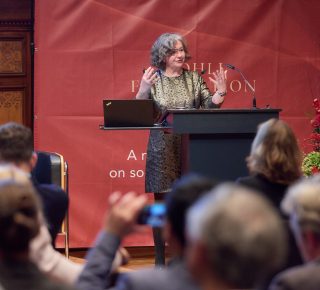
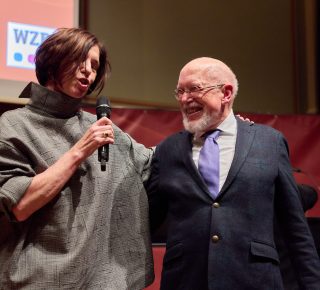
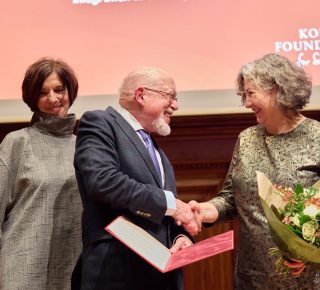

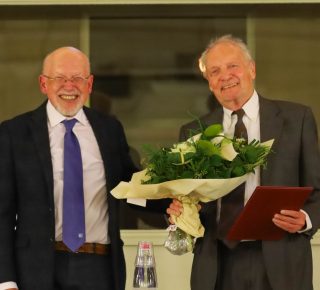
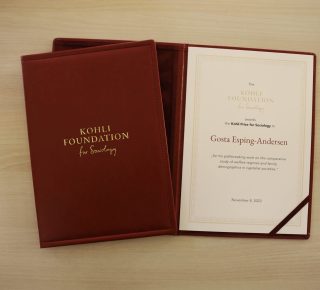
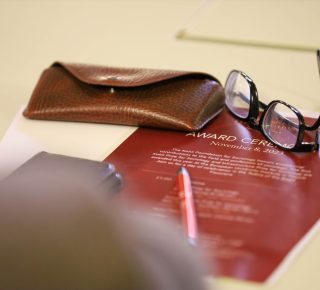
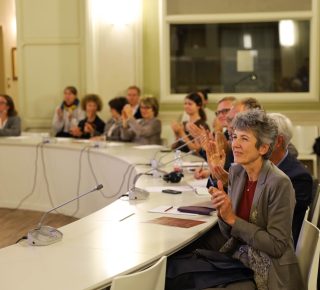
Nominees
Nominees should have made a significant imprint on sociological knowledge. The nominee is expected to deliver an address at the Award Ceremony, to be held in alternate years at the Berlin Social Science Center (WZB) and the European University Institute (EUI, Florence).
Nominations
The Kohli Foundation for Sociology is accepting international nominations for the Kohli Prize for Sociology on an ongoing basis. In addition, we send out a call for nominations each year. Nominations from previous years are kept on file and considered every year. A nomination can be submitted by a scholar based at any institution of higher learning and research (University, research institution, Academy of sciences). Self-nominations and posthumous nominations are not accepted. To diversify our laureate pool, the Kohli Foundation particularly welcomes nominations for women and scholars belonging to academically underrepresented groups. The nominations are confidential and should not be shared with the nominee prior to or after their submission.
Nomination Materials
The nominations must be written in English and should include a short summary of your nomination (150 words) and a full nomination (of about 1-2 pages) presenting a coherent argument for why you believe the nominee deserves to be awarded the Kohli Prize for Sociology. A nomination should also include a CV and publication list of the nominee as attachments. The Selection committee reserves the right to request follow-up documents if deemed necessary.
Important dates
8 FEBRUARY 2026
Deadline for the consideration for the Kohli Prize for Sociology 2026
MARCH 2026
Meetings of the Selection Committee
APRIL 2026
Notification
of the Prize Laureate
NOVEMBER 2026
Award Ceremony at the WZB (Berlin)
Kohli Prize Laureate 2025
The third Kohli Prize for Sociology was awarded to Peter S. Bearman, for his exceptional scholarly contributions to the sociology of movements, networks, health, and science, and for his remarkable ability to address important questions by bridging theory and empirical research.

Peter Bearman is Director of the Incite Institute and Cole Professor of Social Science in the Department of Sociology. He co-designed the National Longitudinal Study of Adolescent Health and is a specialist in network analysis and historical sociology. He is author of Doormen (University of Chicago Press, 2005) and with Adam Reich, of Working for Respect: Community and Conflict at Walmart (Columbia University Press, 2018). He is currently co-editor of the Middle Range Series and the Oral History Series at Columbia University Press. He is a member of the American Academy of Arts and Science, the National Academy of Science, and the National Academy of Medicine. His recent work focuses on the analysis of texts and narratives. He teaches introductory sociology, qualitative research design, research designs, historical sociology, social networks, and classical social theory.
Kohli Prize Laureate 2024
The second Kohli Prize for Sociology was awarded to Michèle Lamont for her incisive comparative studies of social boundaries and social worth that highlight the foundations of conflict and integration in contemporary societies.
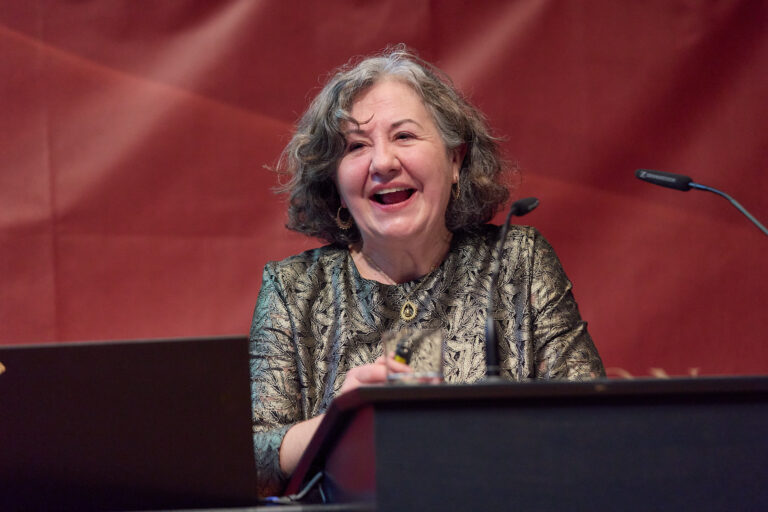
Born in 1957, she grew up in Quebec and studied political theory at the University of Ottawa before obtaining a doctorate in sociology at the University of Paris in 1983. After completing post-doctoral research at Stanford University, she has served on the faculty at the University of Texas at Austin (1985-87), Princeton University (1987-2002) and Harvard University (2003-present). A cultural and comparative sociologist who studies inclusion and inequality, she has researched how we evaluate social worth across societies, the role of cultural processes in fostering inequality, symbolic and social boundaries, and the evaluation of knowledge, as well as topics such as dignity, stigma, racism, class cultures, collective well-being, social resilience, and social change.
Kohli Prize Laureate 2023
The first Kohli Prize for Sociology was awarded to Gøsta Esping-Andersen for his groundbreaking work on the comparative study of the welfare regimes and family demographics in capitalist societies.
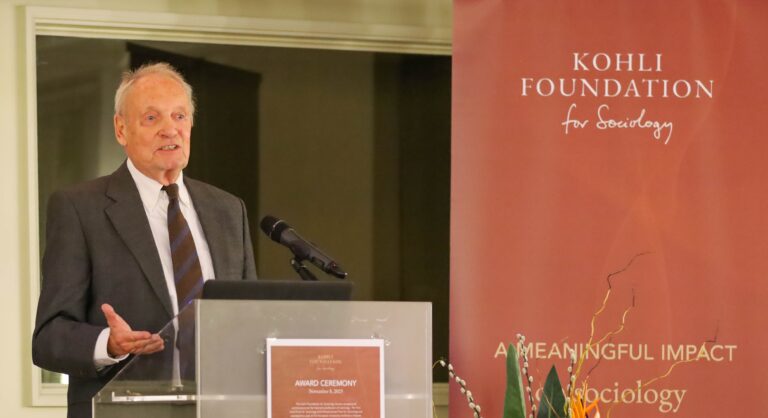
Born in Denmark, he studied sociology, demography and economics in Copenhagen and Wisconsin, where he received his PhD. A highly successful career followed. Gøsta Esping-Andersen has held numerous teaching positions at various universities worldwide, and has cooperated on various high-level policy reports. He is also a member of the American Academy of Arts and Sciences and the British Academy. With his highly influential work “The three worlds of welfare capitalism” he set up a typology of welfare state regimes which has become the classical starting point of research in the field.




